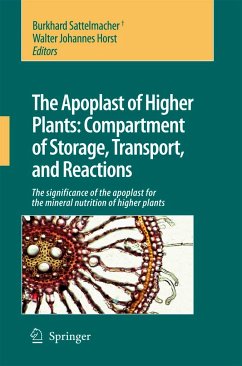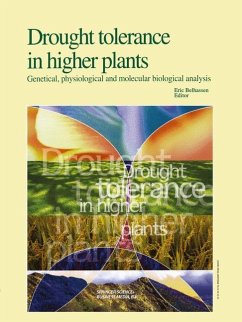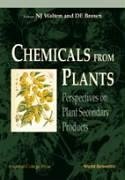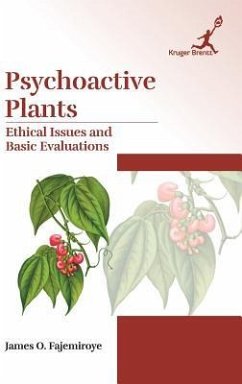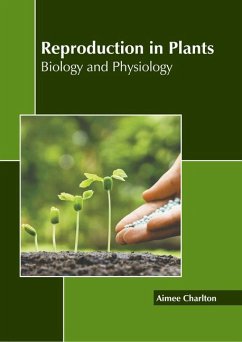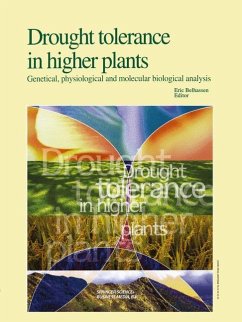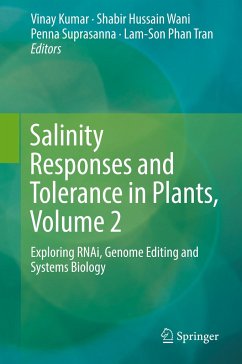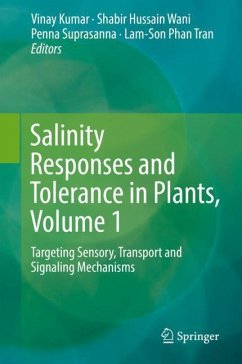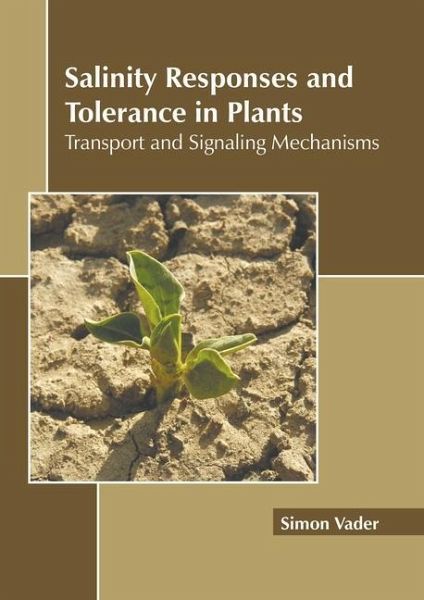
Salinity Responses and Tolerance in Plants: Transport and Signaling Mechanisms
Versandkostenfrei!
Versandfertig in über 4 Wochen
132,99 €
inkl. MwSt.

PAYBACK Punkte
66 °P sammeln!
Plants need to adapt to a variety of environmental conditions such as salinity, drought, light and temperature which affect their growth, flowering and fruiting. Plant cells communicate with each other in order to respond to changing external environment. Soil salinity is one of the major abiotic stresses which affect the plant growth. It induces cytotoxicity due to excessive uptake of sodium and chloride ions. Salinity is also accompanied by oxidative stress. It can be induced due to poor quality of water for irrigation and soil salinization. Some of the tolerance mechanisms adopted by plants...
Plants need to adapt to a variety of environmental conditions such as salinity, drought, light and temperature which affect their growth, flowering and fruiting. Plant cells communicate with each other in order to respond to changing external environment. Soil salinity is one of the major abiotic stresses which affect the plant growth. It induces cytotoxicity due to excessive uptake of sodium and chloride ions. Salinity is also accompanied by oxidative stress. It can be induced due to poor quality of water for irrigation and soil salinization. Some of the tolerance mechanisms adopted by plants are ion homeostasis, hormone modulation, synthesis of polyamines, compartmentalization, and activation of antioxidant enzymes. The book aims to shed light on some of the unexplored aspects of salinity response and tolerance in plants and the recent researches in this field. From theories to research to practical applications, case studies related to all contemporary topics of relevance to this field have been included herein. This book is a vital tool for all researching or studying salinity response and tolerance in plants as it gives incredible insights into emerging trends and concepts.



